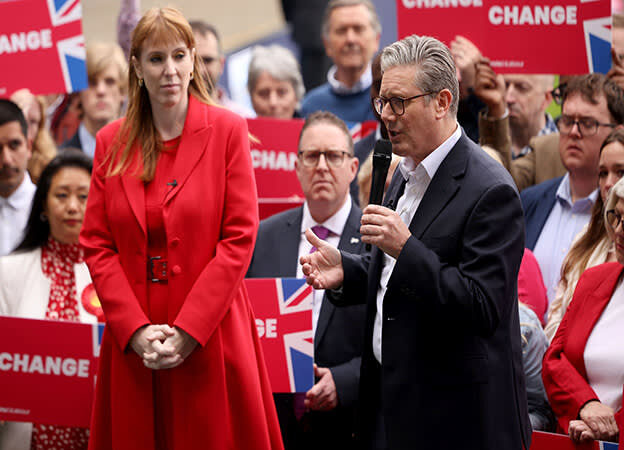
- Pensions, CGT and Isas could become targets of reform
- Make the most of your allowances while you can
On 22 May, Prime Minister Rishi Sunak called a general election for 4 July. Labour has had a double-digit lead over the Conservatives in the polls for months and the odds seem stacked against Sunak’s party. While the Labour manifesto has yet to be published, we discuss the areas of personal finance Labour leader Keir Starmer’s new government could decide to look at, if it is elected.
Pensions
Labour has committed to maintaining the triple lock, so we can expect the state pension to continue to rise every year in line with whichever is the highest between average annual earnings growth from May to July, inflation in the year to September or 2.5 per cent. The state pension increased by a bumper 8.5 per cent in April, off the back of strong wage growth last year. As inflation normalises, the boost seems likely to be lower in April 2025.
Tom Selby, director of public policy at AJ Bell, suggested planned state pension age increases could come into focus for the next administration, even though “neither party is likely to talk about it in their manifesto”. “The current state pension age is 66, with plans to raise this to 67 by 2028 and 68 by 2046. However, there have been calls from various quarters to accelerate that timetable to save the Treasury money,” he added
Labour had pledged to reinstate the lifetime allowance (LTA) when chancellor Jeremy Hunt first abolished it last year. The LTA capped the amount people could have in their pensions without incurring a tax charge to £1,073,100. There is an argument for savers to make use of this break while it is still available, but the LTA is a complex area of pension planning and much depends on personal circumstances. Many have argued that bringing the LTA back would be difficult for Labour because of the technical complications involved.
Andrew Tricker, director at Lubbock Fine Wealth Management, also argued people should make the most of the recent increase to the annual allowance by contributing “as much as they can afford” to their pension, in case Labour cuts it back. From 2023-24, the annual allowance rose from £40,000 to £60,000.
Capital gains tax
Tricker also warned about potential changes to Capital gains tax (CGT). The annual CGT allowance has already been reduced, going from £12,300 in 2022-23 to £3,000 this year.
But Tricker suggested that an increase to CGT rates could also be on the cards and that people who are thinking about taking profits from their investments anyway might want to do it before it materialises.
“Higher rate taxpayers currently pay a 40 per cent tax rate on income above £50,271, but only 24 per cent for capital gains on property and 20 per cent for gains from shares,” he said. “The disparity has fuelled persistent rumours that Labour could raise CGT rates to match income tax rates.”
Individual savings accounts
Labour has also hinted at plans to simplify Isas to make it as easy as possible for people to invest. It has not been made clear what this will look like, but the current Isa landscape includes at least one fairly niche product in the shape of the Innovative Finance Isa (Ifisa).
The Lifetime Isa (Lisa) could also become a target of reform, something industry experts have long campaigned for. Lisas punish savers who need to take money out for reasons other than buying their first home or retirement with a 25 per cent tax charge, normally a higher sum than the original government bonus which investors receive.
It also remains to be seen what Labour will make of the current government’s plan to create a UK Isa and give investors an extra £5,000 allowance for domestic investments. This would ostensibly go against the party’s Isa simplification plans, but Labour has also said it is considering policy options to encourage both institutional and individual investors to invest more in UK capital markets.
Buy-to-let landlords
Labour has also hinted at plans to improve protections for renters, which could have an impact on landlords. The Renters’ Reform Bill had its first reading in the House of Lords last week, but it is now unclear whether it will pass before Parliament is dissolved and what could happen to it if not.
The bill was originally meant to ban no fault evictions among other tenant protections, but the enforcement of this part of the bill has now been delayed indefinitely until the courts are reformed to keep up with the additional caseload. Labour has committed to banning this among other protections for renters and limits on landlords selling buy-to-lets.
Labour could decide to go further, with shadow chancellor Rachel Reeves recently saying that while she is not convinced about rent caps as a blanket approach, they could be an option in certain local areas.






